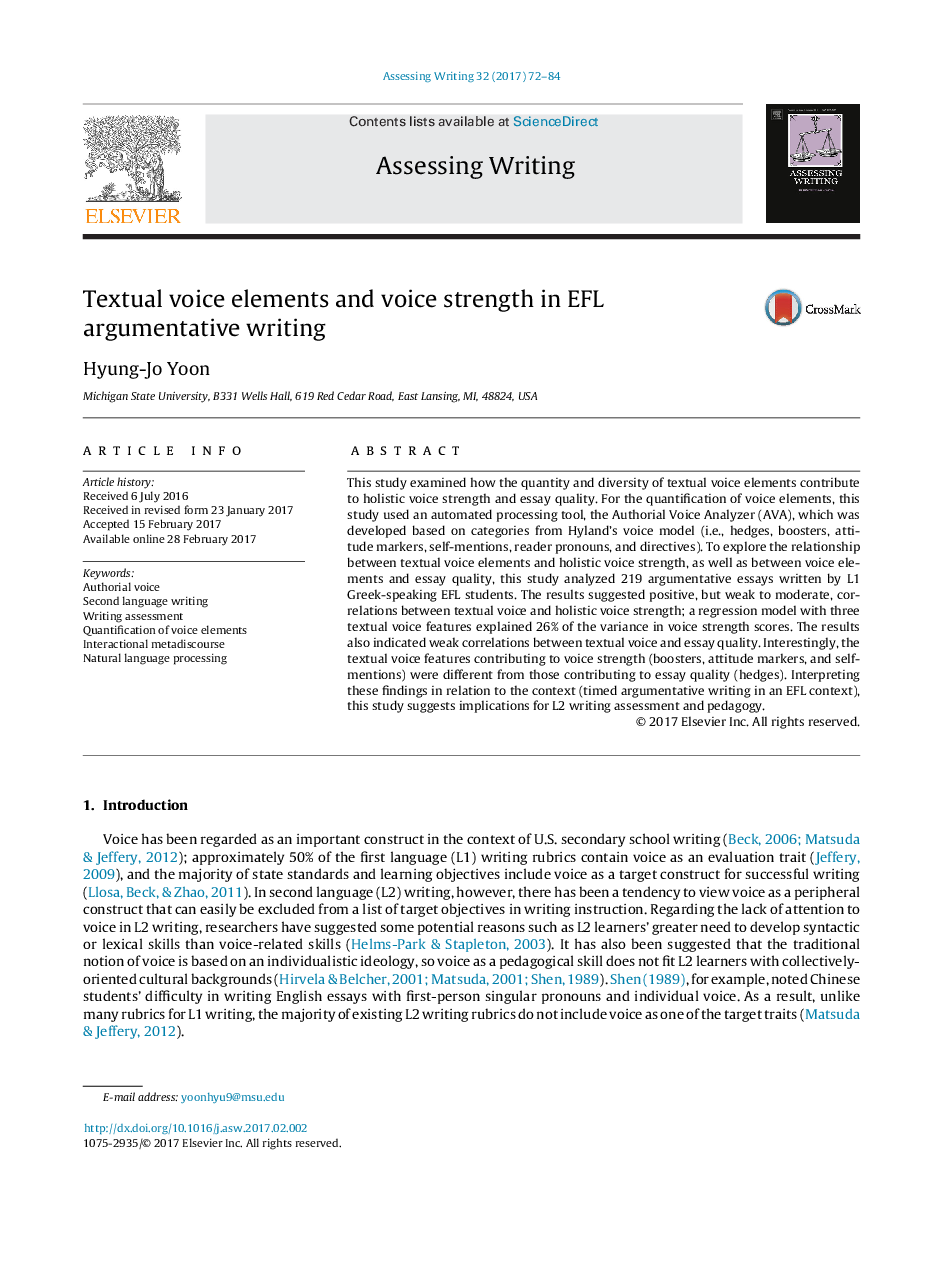| Article ID | Journal | Published Year | Pages | File Type |
|---|---|---|---|---|
| 4935790 | Assessing Writing | 2017 | 13 Pages |
Abstract
This study examined how the quantity and diversity of textual voice elements contribute to holistic voice strength and essay quality. For the quantification of voice elements, this study used an automated processing tool, the Authorial Voice Analyzer (AVA), which was developed based on categories from Hyland's voice model (i.e., hedges, boosters, attitude markers, self-mentions, reader pronouns, and directives). To explore the relationship between textual voice elements and holistic voice strength, as well as between voice elements and essay quality, this study analyzed 219 argumentative essays written by L1 Greek-speaking EFL students. The results suggested positive, but weak to moderate, correlations between textual voice and holistic voice strength; a regression model with three textual voice features explained 26% of the variance in voice strength scores. The results also indicated weak correlations between textual voice and essay quality. Interestingly, the textual voice features contributing to voice strength (boosters, attitude markers, and self-mentions) were different from those contributing to essay quality (hedges). Interpreting these findings in relation to the context (timed argumentative writing in an EFL context), this study suggests implications for L2 writing assessment and pedagogy.
Related Topics
Social Sciences and Humanities
Arts and Humanities
Language and Linguistics
Authors
Hyung-Jo Yoon,
